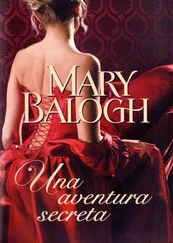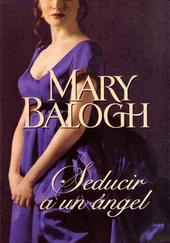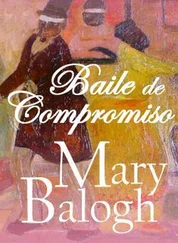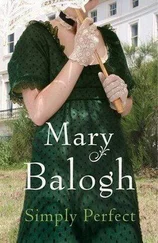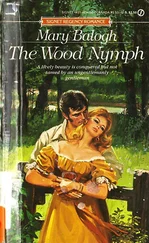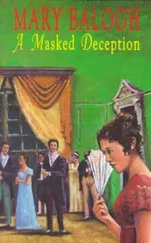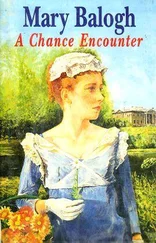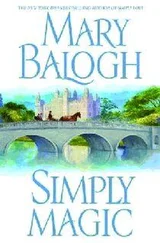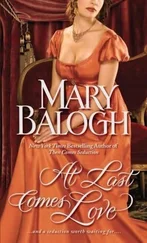Mary Balogh - Simply Unforgettable
Здесь есть возможность читать онлайн «Mary Balogh - Simply Unforgettable» весь текст электронной книги совершенно бесплатно (целиком полную версию без сокращений). В некоторых случаях можно слушать аудио, скачать через торрент в формате fb2 и присутствует краткое содержание. Жанр: Старинная литература, на английском языке. Описание произведения, (предисловие) а так же отзывы посетителей доступны на портале библиотеки ЛибКат.
- Название:Simply Unforgettable
- Автор:
- Жанр:
- Год:неизвестен
- ISBN:нет данных
- Рейтинг книги:4 / 5. Голосов: 1
-
Избранное:Добавить в избранное
- Отзывы:
-
Ваша оценка:
- 80
- 1
- 2
- 3
- 4
- 5
Simply Unforgettable: краткое содержание, описание и аннотация
Предлагаем к чтению аннотацию, описание, краткое содержание или предисловие (зависит от того, что написал сам автор книги «Simply Unforgettable»). Если вы не нашли необходимую информацию о книге — напишите в комментариях, мы постараемся отыскать её.
Simply Unforgettable — читать онлайн бесплатно полную книгу (весь текст) целиком
Ниже представлен текст книги, разбитый по страницам. Система сохранения места последней прочитанной страницы, позволяет с удобством читать онлайн бесплатно книгу «Simply Unforgettable», без необходимости каждый раз заново искать на чём Вы остановились. Поставьте закладку, и сможете в любой момент перейти на страницу, на которой закончили чтение.
Интервал:
Закладка:
“She swore you to secrecy.” Lucius’s eyes had narrowed again.
“She would not wish anyone to know how she was once deceived by her charge, would she?” Portia asked. “But she felt that Mama and Papa should know. And that I should know.”
“Why?” Lucius asked.
For once Portia looked almost nonplussed. But she recovered quickly.
“She knows, I suppose,” she said, “of the close connection between our families, Lucius.”
“I wonder,” he said, “that she did not simply speak to me.”
“What I believe,” Margaret said, “is that Lady Lyle was chagrined that she could not claim any of the glory for Miss Allard’s performance last evening and contrived a way of introducing some spiteful gossip into our family circle so that we would drop our acquaintance with her. I believe it is all a pile of nonsense.”
“So do I, Marg,” Emily said. “Who cares what Miss Allard once did?”
“I would be honored to accompany her again anytime,” Caroline said. “I wonder that you would want to repeat such silliness, Portia.”
“Oh, but we must thank Lady Balderston and Portia for bringing what they heard to our attention,” Lady Sinclair said, ever the diplomat. “Better that than discover it was being whispered behind our backs. Miss Allard appears to have corrected any faults there were in her nature when she stayed with Lady Lyle, though, and that does her credit. And I will be forever glad that I did not miss the opportunity of hearing her glorious voice last evening. Perhaps, Emily, someone would like another cup of tea.”
Lucius got abruptly to his feet.
“You are leaving, Lucius?” his mother asked.
“I am,” he said curtly. “I have just remembered that I must call upon Miss Allard.”
“To thank her in person for last evening?” his mother asked. “I do think that is a good idea, Lucius. Perhaps your grandfather will wish to accompany you if he is up from his afternoon rest. Even Amy—”
“I will go alone,” Lucius said. “I thanked her last evening. I have another mission today.”
He did pause, but it was too late not to complete what he had begun to say—they were all, without exception, looking expectantly at him.
“I am going to ask her to marry me,” he said.
Although the drawing room floor was covered from wall to wall with a thick carpet, a pin might nevertheless have been heard to drop as he strode from the room.
And now what the devil had he gone and done? he asked himself as he took the stairs two at a time up to his room.
He had opened his mouth and rammed his foot in it, boot and all, that was what.
But the thing was, he was not even sorry.
Frances spent a busy morning. She had not expected to do so after the excitement and upsets and general turmoil of the evening before. And she had had an almost sleepless night to boot.
But her great-aunts remained in bed late, and so she was alone in the breakfast room when the letter from Charles was delivered into her hand.
He begged to see her again. He had never understood why she had run away without a word. It was true that they had quarreled during their final meeting, but they had always made up their disagreements before that. He was no longer angry with her, if that was what she feared. He could see that she had redeemed herself since leaving. He understood that she had been teaching quietly and respectably in Bath ever since she left London.
She folded the letter and set it beside her plate. But her appetite was gone.
She had met the Earl of Fontbridge early in her come-out Season, and they had quickly fallen in love. He had wanted to marry her—but it would take some time to bring his mother around to accepting the daughter of a French émigré as his wife. And then her father had died. And then his mother would have to be reconciled to the fact that she had no fortune. And then he did not think that his future wife ought to be known as a singer who actually sang for her living. As Frances had wondered if he would ever consider the time and circumstances just right for them to marry, she had also started to fall out of love with him. And then they had had a bitter quarrel after he had heard of one particular party at which she had sung. She had defended her right to do as she wished since they were not even officially betrothed, and then she had told him that that was the end, that she never wanted to see him again.
And indeed she had not done so—not until last evening. And in the meantime she had promised never to see him again. She had done worse than that . . .
She was honor bound, then, not to answer the letter.
She was developing a nasty history, she thought, of not offering the explanations that ought to be made. And besides that, the two years following her father’s death had been fraught with errors and misjudgments on her part—the result of having been the pampered, adored daughter of a man who had sheltered her and guided her and made most of her decisions for her.
She closed her eyes and pushed her plate away. She had made it a practice not to think of those two years. She had done well since. She had taken charge of her own life, and she was proud of what she had made of it. But of course it was impossible to put something entirely from mind simply by the power of one’s will—especially when that something was as prominent as two misspent years of one’s life. She had often wished she could go back and do things differently at the end. She still wished it.
Well, she thought, opening her eyes and staring down at the white tablecloth, she was back. And it was too late to creep out of London as she had crept in, unseen. All the people she had particularly wanted to avoid—Charles, the Countess of Fontbridge, Lady Lyle—had actually seen her. She did not doubt that George Ralston knew by now too that she was here.
If it was too late to creep away unseen, then perhaps she should stop even stepping lightly.
Perhaps she could do things differently after all, even if her actions were belated.
An hour later she was on her way alone and on foot to call upon the Countess of Fontbridge. It was not the fashionable time to make social calls, but then this was no social occasion.
When she was admitted to the earl’s house on Grosvenor Square, she asked if the countess was at home and entrusted to the butler’s care a short letter she had written to Charles, with the instructions that it was to be placed into his own hands. She was left standing in the tiled hall, but she did not really expect that the countess would refuse to admit her. A few minutes later she was shown into a small sitting room on the floor above.
No greetings were exchanged. The countess was standing before a small desk, her head at an arrogant tilt, her hands clasped at her waist. She did not offer her visitor a chair.
“So you have seen fit to break your word, Mademoiselle Halard,” she said. “I suppose you have come here this morning with some explanation. None is acceptable. It is to be hoped that when you decided to return to London, you also came prepared to take the consequences.”
“I came because one of my great-aunts was ill, ma’am,” Frances said. “When I agreed to sing at Marshall House last evening at the request of the Earl of Edgecombe, I was quite unaware that other guests were being invited to listen to me. My great-aunt is better and the concert is over. I will be returning to Bath without further delay. But I did not come here to offer an excuse. I ought not to have made the agreement I did with you more than three years ago. I did so because I was angry on Charles’s behalf that you controlled his life so ruthlessly that you thought you could buy off the woman he wished to marry. I did so with bitter cynicism. By that time I had no intention of marrying him. I had even told him so.”
Читать дальшеИнтервал:
Закладка:
Похожие книги на «Simply Unforgettable»
Представляем Вашему вниманию похожие книги на «Simply Unforgettable» списком для выбора. Мы отобрали схожую по названию и смыслу литературу в надежде предоставить читателям больше вариантов отыскать новые, интересные, ещё непрочитанные произведения.
Обсуждение, отзывы о книге «Simply Unforgettable» и просто собственные мнения читателей. Оставьте ваши комментарии, напишите, что Вы думаете о произведении, его смысле или главных героях. Укажите что конкретно понравилось, а что нет, и почему Вы так считаете.

